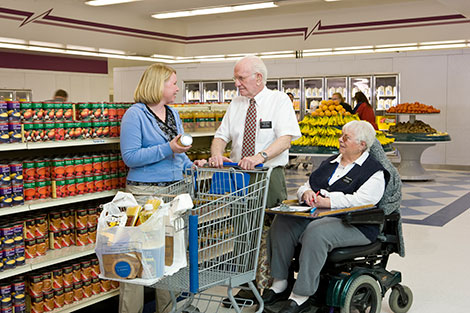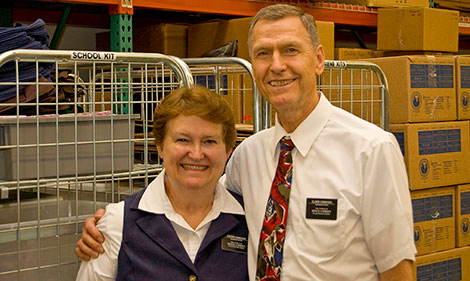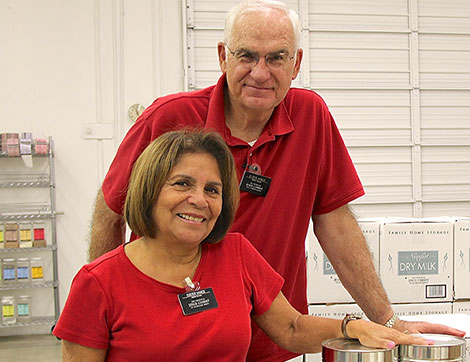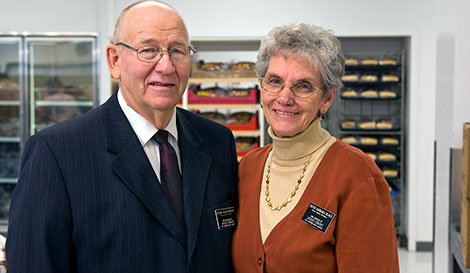
Production and Distribution advances self-reliance by providing basic food storage items at reasonable prices in home storage centers and produces and distributes the commodities necessary to take care of those who are poor and needy through bishops’ storehouses. Through the selfless service of senior service missionaries and a multitude of volunteers, the Lord’s way of providing for those in need is being fulfilled.
Senior Service Missionary Opportunities in Welfare Operations

Bishops’ storehouses, located throughout the world, distribute commodities to the poor and needy as requested by bishops. With the exception of a handful of large facilities, bishops’ storehouses are managed by senior service missionaries who are called by agent stake presidents.
Missionaries at bishops’ storehouses serve as managers and assistant managers for a period of two to three years. Missionaries live at home and serve part-time during normal operating hours.
Responsibilities will include:
- Managing the operations of the storehouse.
- Managing inventories to ensure that commodities are available for distribution.
- Helping to fill patrons’ orders.
- Entering orders into a computer management system.
- Where authorized by Welfare Services, delivering bishop’s orders by truck.
- Coordinating volunteers.

Home storage centers, located throughout the U.S. and Canada, help individuals and families become prepared for adversity by having a basic supply of common longer-term food storage items. These facilities are operated by senior service missionaries who have been called by agent stake presidents.
Senior service missionaries are called for two to three years to be managers and assistant managers. Missionaries live at home and serve part-time during the center’s normal hours of operation.
Responsibilities will include:
- Managing the operations of the home storage center.
- Managing inventories to ensure that commodities are available for purchase.
- Operating a cash register. (Managers are certified to handle credit card payments.)
- Coordinating volunteers.
Other senior service missionaries and service missionaries may also be called by the agent stake president to fill a variety of service needs for bishops’ storehouses.
Farms, ranches, and orchards operated by The Church of Jesus Christ of Latter-day Saints provide the fresh products used in the welfare system. Managers are paid employees, but they rely on donated labor to produce and harvest the crops. They would not be successful without the thousands of volunteers who give so freely of their time and abilities. In remote areas, there may be a need for senior service missionaries and service missionaries.
Production facilities, such as canneries, Deseret Bakery, Deseret Dairy, Deseret Meat, Deseret Mill and Pasta, and Deseret Soap, are managed by paid staff; however, volunteers provide the labor necessary to operate these projects. Senior service missionaries and service missionaries may be called by agent stake presidents to assist in this work. Missionaries may be asked to assist in training and directing the work of volunteers, maintaining records, promoting safe work practices, and helping to maintain equipment. Responsibilities vary by facility.
Missionary Moments

Food Production and Distribution: Navajo Hopi Garden Project
